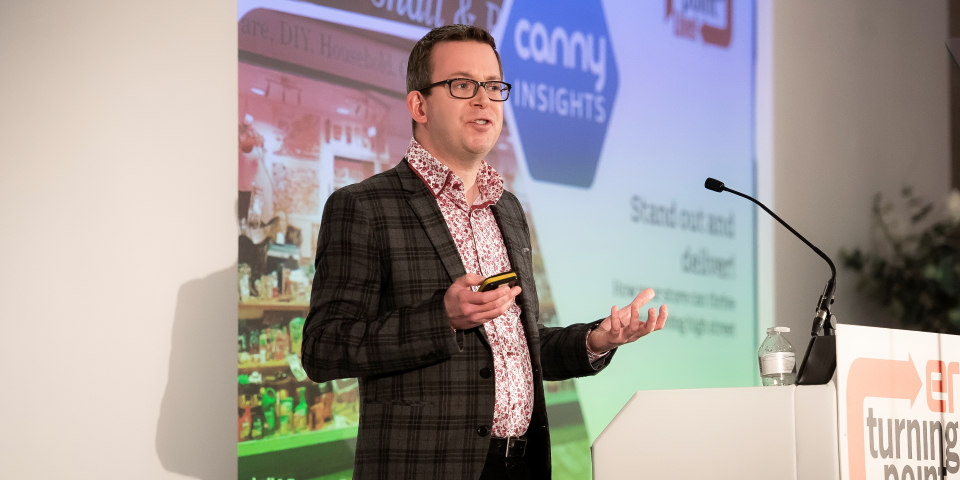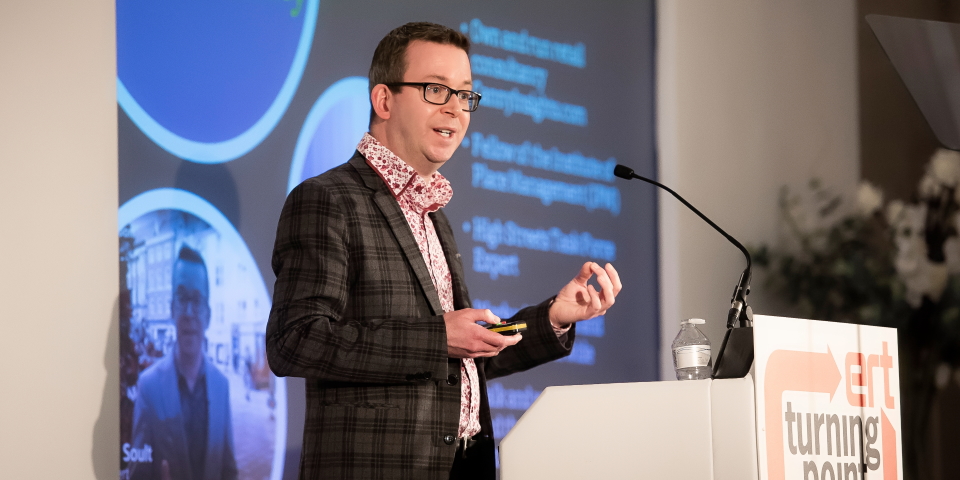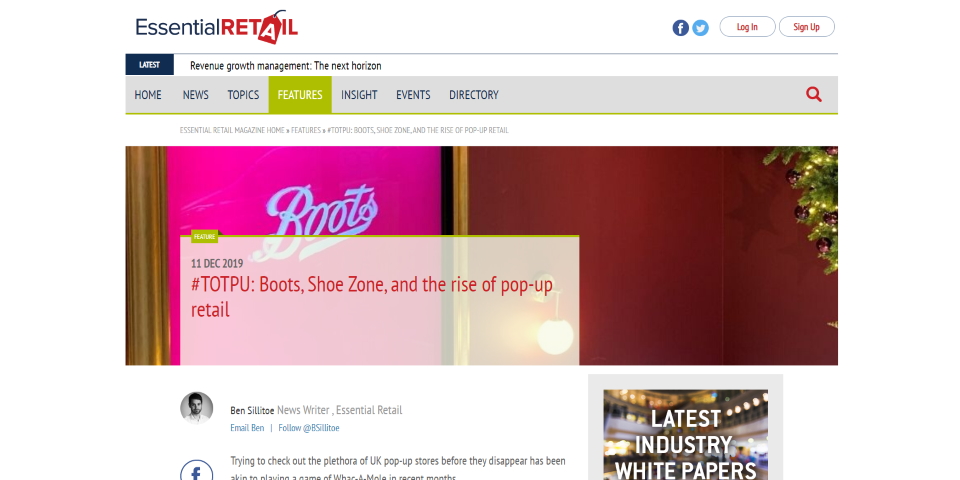Graham Soult from CannyInsights.com shared a typically upbeat assessment of the future of the high street at December’s Turning Point Live Conference, organised by electrical retail magazine ERT.
In his keynote speech, to an audience of electrical retailers and suppliers, high-street champion Graham shared his thoughts on current trends, and highlighted some practical steps that retailers can take to stand out and thrive in competitive markets – such as making the most of their kerb appeal and other bricks-and-mortar virtues.
"Bricks and mortar retail isn't dead". @soult begins his keynote speech at ERT's Turning Point Live Conference! pic.twitter.com/IdMy1CL1wX
— ERTonline (@ERTonline) December 6, 2021
“Disorientating pace of change”
Setting the scene, Graham used historic images of Stockton-on-Tees High Street through the ages to illustrate how change is not new, and that retail and the high street are always evolving.
Nevertheless, he acknowledged that “the current pace of change can be disorientating”, highlighting the many factors that individual businesses cannot do much about: the growth of online shopping, out-of-town retail, historically rising rents, business rate increases, fragile consumer confidence, and, of course, Covid-19.
One consequence of all these challenges, Graham noted, has been the demise of already weak retailers such as Debenhams, whose collapse was accelerated – but not caused – by Covid.
“But the high street isn’t dead”
Nevertheless, it’s wrong to assume that all the trends are pointing in the same direction. Graham used the example of new independent stores that had opened during the pandemic – such as Sandersons department store in Morpeth, and gift shop Elvet & Bailey in Durham – to make the point that bricks-and-mortar retail can still thrive if it’s “compelling, rather than boring”.
Digging deeper into what can be done to create customer experiences of that kind, Graham argued that as well as businesses playing their part, the places in which those stores are located also need to up their game.
Citing his experiences of visiting and working with towns up and down the country, Graham suggested that the places that are succeeding are often those that are demonstrating strong and visionary leadership, becoming more mixed-use, investing in public realm, holding markets and cultural events, removing barriers to visiting, and, as demonstrated by the Indie Durham City project, supporting and nurturing independent businesses.
This positive backdrop, Graham argued, creates a better context for businesses to pursue their own transformations, through being efficient, creative, resourceful, innovative, customer focused, unique, and marketing savvy.
Tips for success
Drilling down into some specific actions that businesses can embrace, Graham summed up his key message as “being really good at what you do, and then making sure everyone knows about it”.
Using examples from his travels, Graham showcased retail businesses that are doing things right, such as being clear about what makes them different, and delivering something Amazon can’t – using all those qualities of personality, localness, specialism and agility that many indies are so good at.
Graham also urged bricks-and-mortar retailers to “roll out the red carpet” for customers, illustrating his point using examples of businesses with welcoming entrances, bright frontages and enticing shop windows that draw the customer in and convey a positive first impression of the retailer’s brand – and then carry that through in the attention to detail inside.
Describing how many of the businesses that bounced back best after lockdown were those that had never stopped talking to and engaging with their customers online, Graham also urged the retailers in the audience to make use of the many tools at their disposal – such as social media, websites, and their Google My Business listing – to help build relationships, grow customer loyalty, and stay top of mind.
It’s proven, he argued, that using online channels is an effective way to drive footfall and sales in the bricks-and-mortar space, even if you’re not actually selling online.
“Work together”

Wrapping up with his key takeaways from the session, Graham argued that:
“The high street is evolving – as it always has done – but it’s far from dead. Focus energy on where you can make a difference, not on the factors you can’t change. A great business is distinctive and smart, with an engaging, up-to-date online footprint. Embrace those opportunities, then work with other businesses in your place to maximise the positive impact.”
Citing a newspaper story about high-street closures from a day or two earlier, Graham observed how “hammer blow” headlines of that kind are sadly ubiquitous – despite all the new business openings and other positive developments that are happening too.
However, quoting his own North East Times article from January 2021 – where he had written that “The emerging high street is vibrant, mixed-use, and full of local personality” – Graham ended his presentation, and the conference, on an uplifting note.
He urged everyone in the room, and in the places where they come from, to work together to “change the narrative” around what is happening on the high street – and how we showcase and celebrate the positive change that is taking place, despite the persistent, inaccurate and unhelpful predictions of the high street’s demise.




1 Comment
[…] I’ve argued before, businesses that kept up the conversation and stayed top of mind during periods of closure – […]